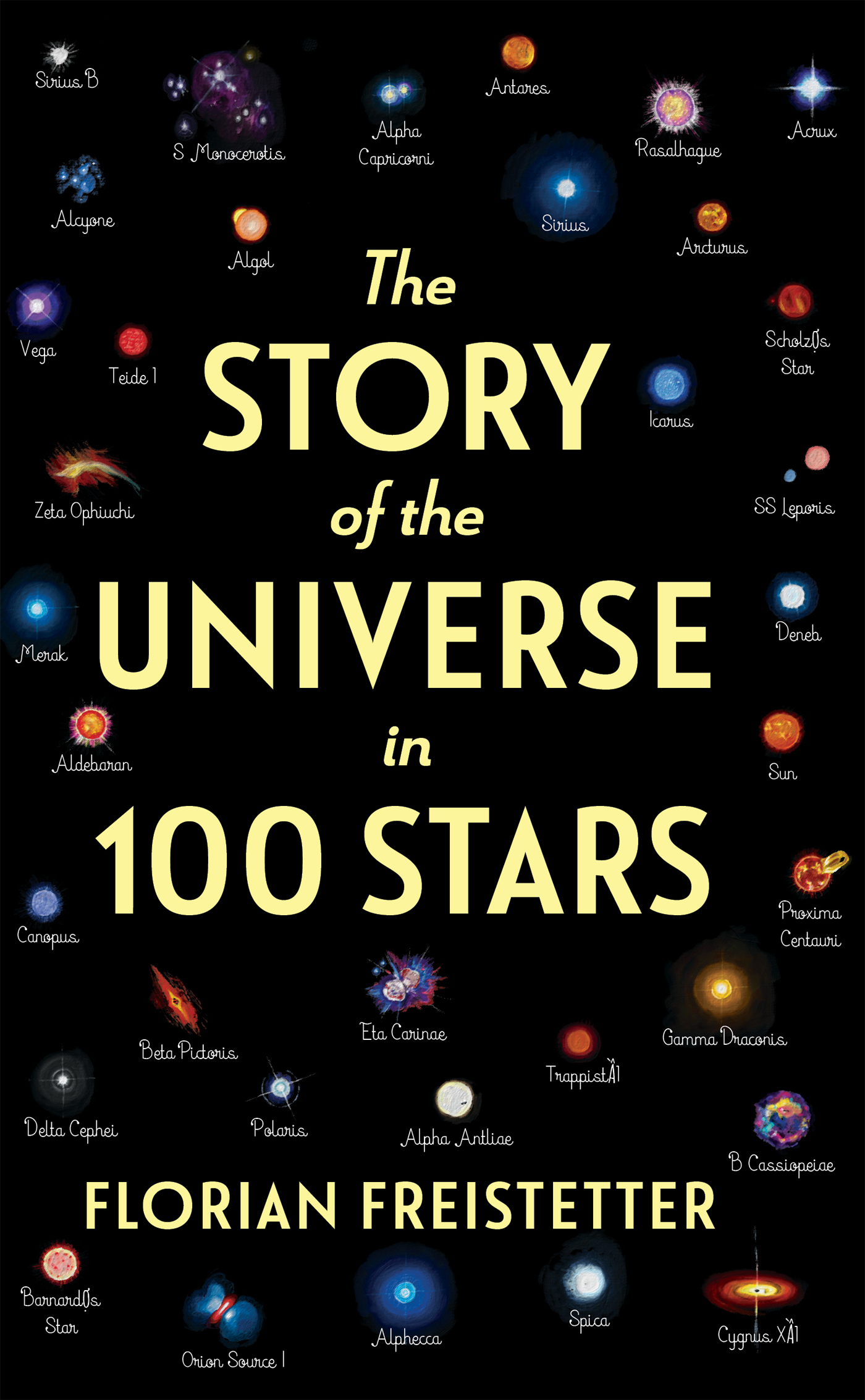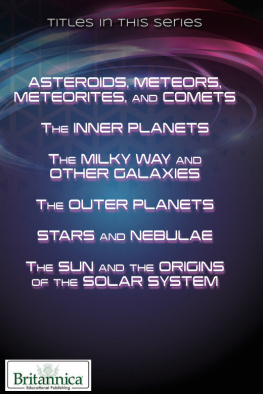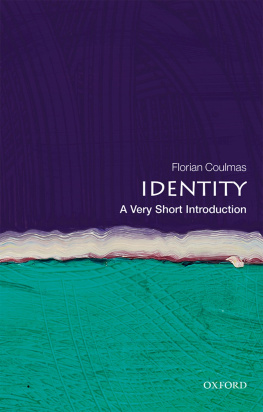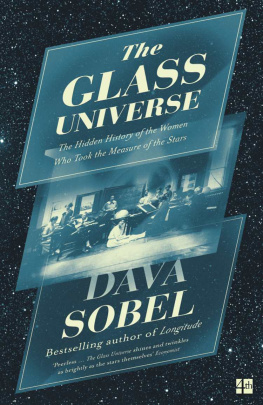Florian Freistetter - The Story of the Universe in 100 Stars
Here you can read online Florian Freistetter - The Story of the Universe in 100 Stars full text of the book (entire story) in english for free. Download pdf and epub, get meaning, cover and reviews about this ebook. year: 2019, publisher: Workman Publishing, genre: Religion. Description of the work, (preface) as well as reviews are available. Best literature library LitArk.com created for fans of good reading and offers a wide selection of genres:
Romance novel
Science fiction
Adventure
Detective
Science
History
Home and family
Prose
Art
Politics
Computer
Non-fiction
Religion
Business
Children
Humor
Choose a favorite category and find really read worthwhile books. Enjoy immersion in the world of imagination, feel the emotions of the characters or learn something new for yourself, make an fascinating discovery.

- Book:The Story of the Universe in 100 Stars
- Author:
- Publisher:Workman Publishing
- Genre:
- Year:2019
- Rating:3 / 5
- Favourites:Add to favourites
- Your mark:
- 60
- 1
- 2
- 3
- 4
- 5
The Story of the Universe in 100 Stars: summary, description and annotation
We offer to read an annotation, description, summary or preface (depends on what the author of the book "The Story of the Universe in 100 Stars" wrote himself). If you haven't found the necessary information about the book — write in the comments, we will try to find it.
The Story of the Universe in 100 Stars — read online for free the complete book (whole text) full work
Below is the text of the book, divided by pages. System saving the place of the last page read, allows you to conveniently read the book "The Story of the Universe in 100 Stars" online for free, without having to search again every time where you left off. Put a bookmark, and you can go to the page where you finished reading at any time.
Font size:
Interval:
Bookmark:

A lso by F lorian F reistetter
The Comet in a Cocktail Glass
Isaac Newton: The Asshole Who Reinvented the Universe
Stephen Hawking: His Science in a Nutshell

are 100 stars enough to tell the story of the entire universe? No: The cosmos is far larger than we can possibly imagine and contains an equally unimaginable number of stars. Their true number is the subject of one of the hundred stories in this book, which, taken together, tell just one of many possible stories about the universe.
This book is not a mere inventory of the cosmos. Of course, youll find out everything about the stars, galaxies, planets and all the other celestial bodies and phenomena you may encounter in the universe. Youll meet stars that tell of galactic collisions and reveal how black holes work; stars orbited by planets stranger than anything science fiction has to offer. Some stars allow us a glimpse of the beginning of the universe, others reveal what its future holds.
But a history of the universe is always also a story of mankind. Ever since we appeared on the scene, the universe has exerted a never-ending fascination on us. The stars have influenced our culture and our thinking and have made us what we are todaywhich is why the scientists who have expanded our knowledge of the universe matter, too. The stars in this book tell stories about famous people such as Isaac Newton and Albert Einstein, as well as about people you may not have heard of before: Dorrit Hoffleit, who first counted them; Henrietta Swan Leavitt, thanks to whom we know how big the universe is; Amina Helmi and her research into galactic fossils; Cecilia Payne-Gaposchkin, who discovered what stars are made of; Georg von Peuerbach, who paved the way for the heliocentric world view; and James Bradley, who proved once and for all that Earth revolves around the Sun. They, and the many others who show up in this book, have enabled us not only to admire the night sky, but also to understand it.
By the light of the stars, we can see how everything started 13.8 billion years ago, and how the Sun and the planet on which we live came into being. Their light has inspired us to invent myths and tell stories, spurred us to perform great technological feats and encouraged us to think deeply about what makes us who we are. Nowadays, it compels us to wonder whether were alone in the universe and what our cosmic future might look like.
The hundred stars I have chosen for this book have little in common. Some are bright and have for thousands of years been part of the stories we tell ourselves about the heavens. Some shine so feebly that we can only discern them with the help of immense telescopes. Some have famous names, others merely bear catalog designations consisting of lots of digits and letters. There are large stars, small stars, nearby stars, remote stars. Some of the stories are about stars that havent formed yet, others about ones that are long gone.
The stars are as variegated as the universe itself; each has its very own story to tell, and collectively they have shaped the history of the whole world. And thats exactly how this book works. You can open it to any chapter you like and immerse yourself in a partial story of the universe; each chapter has been conceived so that it can be read independently of the others. Or you can start at the beginning and read through to the end, and with each story delve deeper into the secrets of the universe.
The story of the universe is too complex to be encompassed by a single person in a single book. But the version told here with the help of the chosen hundred stars is one of the greatest stories ever told about the universe. Its the story of all those people who, over the course of millennia, have tried to understand the world in which they liveand the story of the fascinating discoveries made along the way.
Enjoy your journey through the cosmos.
its hard to miss the brightest star in the Aquila constellation. Just sixteen light years from Earth, it is eleven times brighter than the Sun and the twelfth brightest star in our night sky. Its official name is Altair, which, like so many other stars names, comes from Arabic.
During the eighth and ninth centuries, Arab astronomers expanded upon ancient Greek knowledge and published translations of the classical texts. When medieval European scholars translated these Arabic works in turn, they also adopted their designations for the stars. Thus al-nesr al-tair (the flying eagle) was the star we know as Altair today. Nearly every bright star in the sky has a name that stems from Arabic, including Ras Algethi, Algol, Dschubba, Fomalhaut, Mizar, Zubenelgenubi and many others. A handful bear Latin appellations, such as Polaris, Regulus and Capella. But even if Western culture very much rests on the foundations of Greco-Roman antiquity and its Arab reception, we mustnt forget that the sky has been studied at all times by all people.
Every culture thus has its own name for the stars and tells its own stories. In Japan, for example, Altair is known as Hikoboshi, and every year on July 7 a celebration is held in its honor. Or rather, in honor of Hikoboshi and Orihimethe cowherd and the weaver girl. Their story harks back to a 2,600-year-old Chinese folk tale: Orihime, daughter of Tentei, god of the sky, spends her days weaving garments for the gods. To provide his daughter with a little distraction, Tentei arranges her engagement to the cowherd Hikoboshi, but, like other young people in love, they consequently forget all about their work: The cows are running around unsupervised and the gods are waiting in vain for the cloth for their new robes. Tentei is forced to intervene and separate the lovers. He sends them into exile on opposite banks of the Amanogawa, the great heavenly river; yet there, too, their work remains undone, because Orihime and Hikoboshi are far too unhappy to concentrate on their duties. They are therefore granted permission to meet once a year, on the seventh day of the seventh month. However, when the time comes for their first visit, they find that there is no bridge across the heavenly river. Orihime cries so bitterly that a large flock of magpies takes pity on her and forms a bridge across the Amanogawa with its wings; they promise the couple that they will from then on do this for them every year on the seventh day of the seventh monthas long as theres no rain to make the heavenly river swell too much.
This sad love story and its happy ending are displayed in the sky to this day. Hikoboshi is, as Ive said, the star Altair, and the heavenly weaver girl Orihime is represented by the bright star Vega; and just like in the tale, you can see the Milky Waythe heavenly river Amanogawastretch out between them. If you look very carefully, you can even make out the kindhearted magpies: The region of the Milky Way visible between Vega and Altair is partly filled with large interstellar dust clouds stretching in a dark band across the heavenly river.
You can see Orihime and Hikoboshi high up in the sky in the summer, and particularly clearly at precisely the time that Japan celebrates the Tanabata. On that day, people commemorate the story of the cowherd and the weaver girl by erecting bamboo trees, to which they attach little pieces of paper containing their most ardent wishes.
Font size:
Interval:
Bookmark:
Similar books «The Story of the Universe in 100 Stars»
Look at similar books to The Story of the Universe in 100 Stars. We have selected literature similar in name and meaning in the hope of providing readers with more options to find new, interesting, not yet read works.
Discussion, reviews of the book The Story of the Universe in 100 Stars and just readers' own opinions. Leave your comments, write what you think about the work, its meaning or the main characters. Specify what exactly you liked and what you didn't like, and why you think so.









